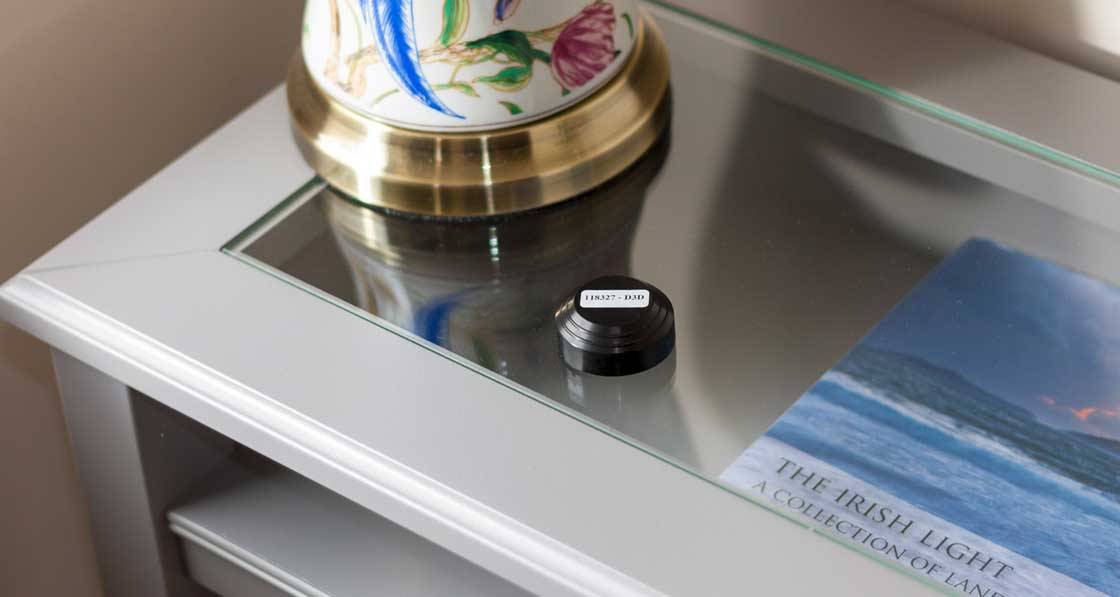
- Health
- Posted
Landmark case may empower tenants on radon
A landmark legal case may give tenants the chance to discover if their building poses a lung cancer risk, Passive House Plus can exclusively reveal.
This article was originally published in issue 35 of Passive House Plus magazine. Want immediate access to all back issues and exclusive extra content? Click here to subscribe for as little as €10, or click here to receive the next issue free of charge
The commissioner for environmental information has taken back a decision which denied a tenant access to test results from nearby buildings for radon, a naturally occurring radioactive gas linked to roughly 300 lung cancer cases per year in Ireland.
The decision could have far reaching consequences regarding access to information on natural emissions into the environment in Ireland and across Europe.
Friends of the Irish Environment member Anna Conlan submitted an Access to Information on the Environment (AIE) request in January to the Environmental Protection Agency, the state agency responsible for radiological protection, to ask if a radon test had been conducted on a property in Dublin City she was renting, or failing that from the ten most closely located homes that had been tested.
The EPA told Conlan that no test had been conducted on the property, and refused the request on nearby homes on the basis that the information was personal data. Conlan appealed to the commissioner for environmental information, who upheld the EPA’s refusal decision, again on the basis that it was personal data. Conlan then instructed FP Logue Solicitors to issue a high court appeal.
In September, having heard Logue’s legal argument, the commissioner conceded the case, which has to be formally struck out and sent back in October, with the commissioner required to make a new decision.
“If the information relates to emissions into the environment it has to be released, except for very specific circumstances,” Fred Logue, Conlan’s solicitor, told Passive House Plus.
“The directive says you can’t rely on a personal data exemption to refuse information on access to information on emissions into the environment. Radon relates to emissions that are particularly harmful. I’d be hoping that the information is released.”
Logue said that the issue of personal data and emissions has long needed to be worked out. While there is established case law that access should be given to information on man-made emissions such as those occurring from pesticides, there has not been much on natural emissions, and the ones that effect homes.
The office of the commissioner for environmental information told Passive House Plus it had agreed to take back the decision. “Once remitted, the case will be reviewed and the commissioner will make a new decision. As the case is ongoing we cannot comment further at this stage.”
A spokesperson for Friends of the Irish Environment (FIE) told Passive House Plus: “The Access to Information on the Environment regulations are specifically intended to ensure environmental information is available in order to protect human health and the environment. The fact that it seems the commissioner is now likely to make available the information on radon concentrations means that effect may be given to the Access to Information on the Environment regulations in a way that should lead to a reduction in lung cancer deaths in Ireland.
“We hope that the information will be actively disseminated in accordance with Ireland’s obligations under article 5(1) of the Aarhuus Convention,” the spokesperson continued. “There’s a very low level of radon testing in general. There’s next to zero testing of rented properties.”
While giving people access to radon levels from nearby properties may help to draw attention to how high or low levels may tend to be in a given area, it’s important that people don’t read too much into these results, as high radon levels can be registered in supposedly low radon areas for a simple reason: the ground is not homogenous, and consequently radon levels can vary greatly in adjacent buildings. Given that radon tests can be completed for less than €50, the onus should instead be on widespread testing.
“In order to reduce exposure to radon far more testing needs to be done,” said the FIE spokesperson. “An awareness of radon levels in neighbouring properties would encourage this. We absolutely believe landlords need to be placed under a legal obligation to test their properties.”
FIE are hopeful that the commissioner on environmental information’s decision will open the door to the release of other environmental information relating to buildings. “There’s been a tendency to consider information about property and buildings to be personal information,” the spokesperson said. “We think that’s a misinterpretation of what personal information is. We hope that this will be a precedent in relation to other areas of environmental information.”
Related items
-
Air tightness training course to launch in Carlow this March
-
 #BuildingLife Series: Director at CORA Consulting Engineers, John Casey
#BuildingLife Series: Director at CORA Consulting Engineers, John Casey -
 Green homes and finance join forces for growth
Green homes and finance join forces for growth -
 Hotel demolition judicial review could set embodied carbon precedent
Hotel demolition judicial review could set embodied carbon precedent -
 ZEB Summit celebrates Irish passive progress
ZEB Summit celebrates Irish passive progress -
 Irish and British associations unite for conference as passive house explodes
Irish and British associations unite for conference as passive house explodes

